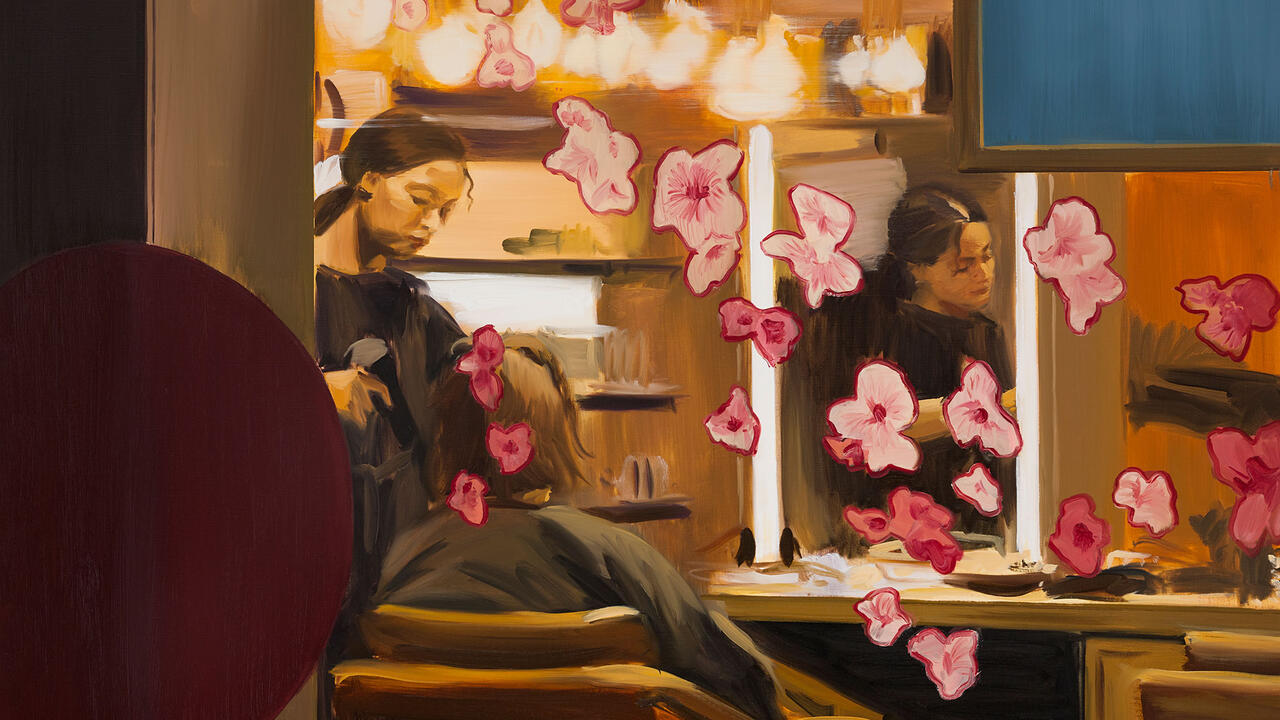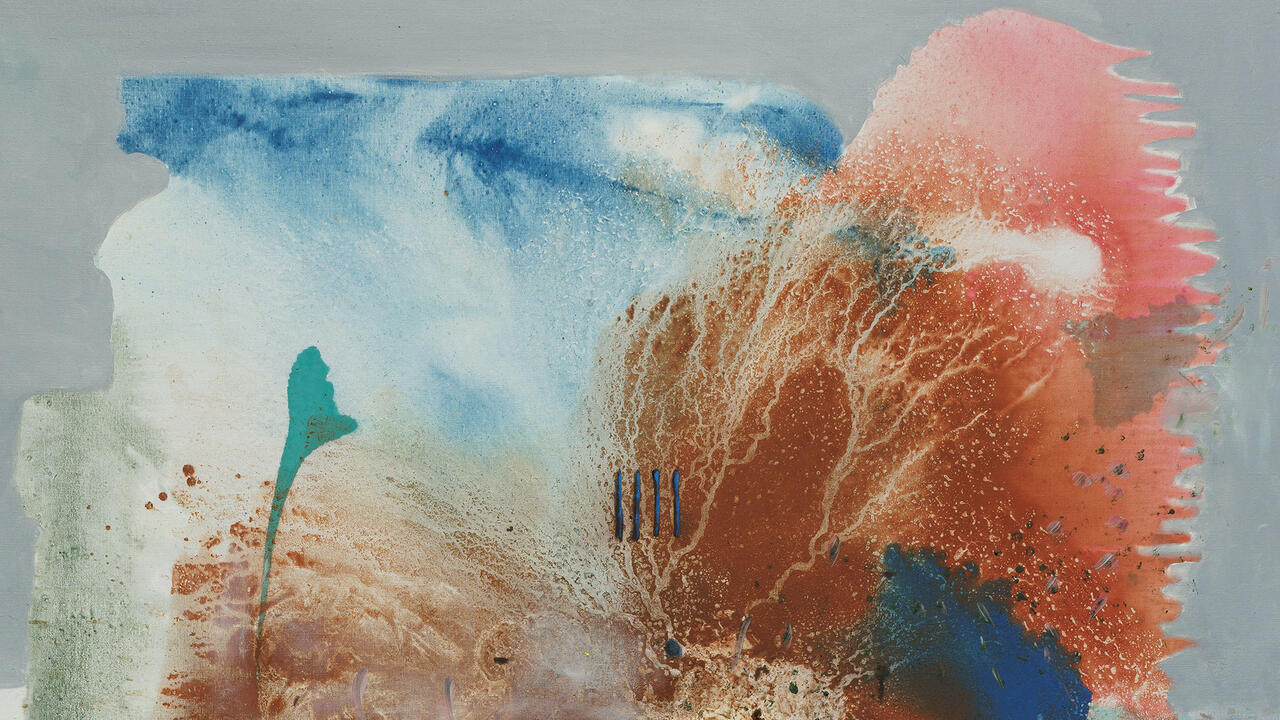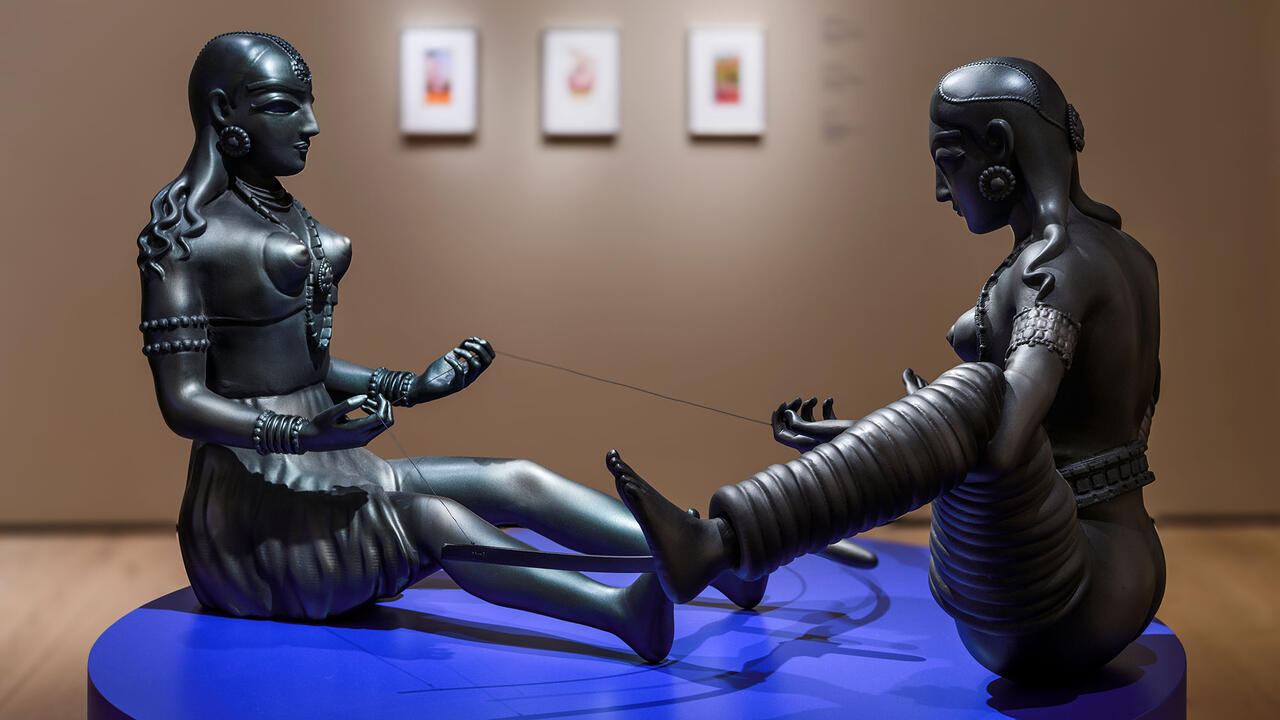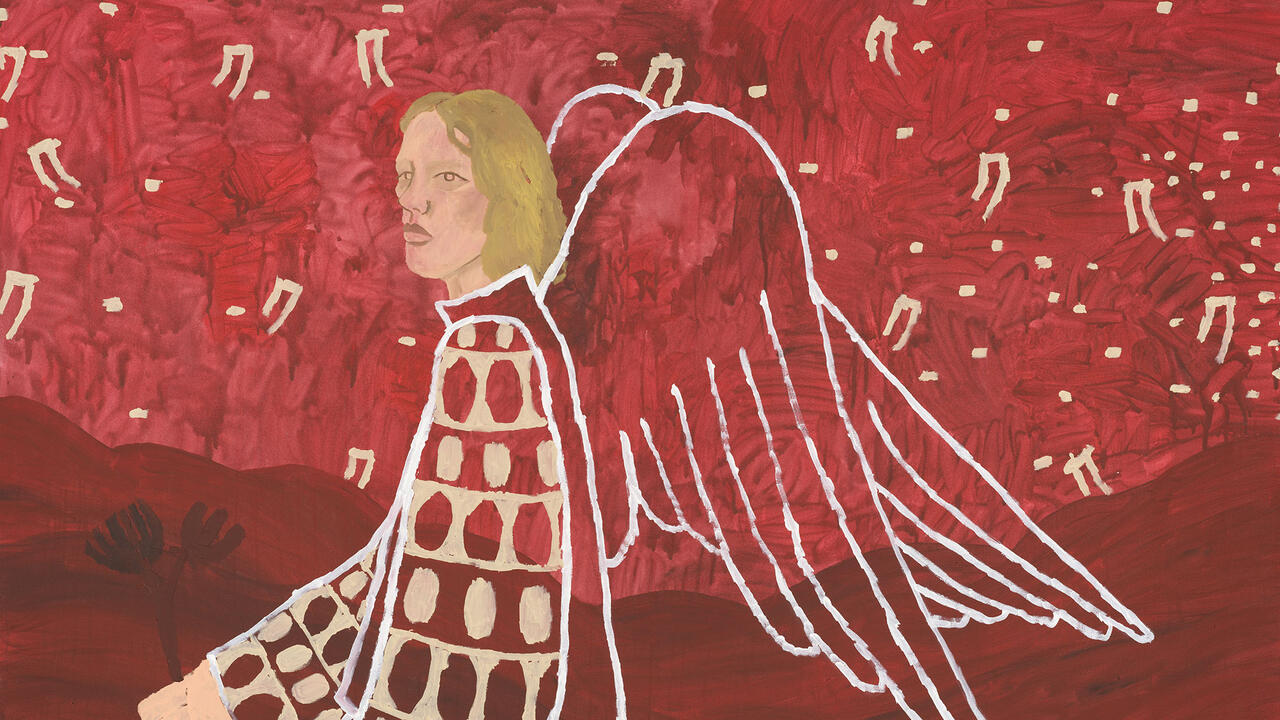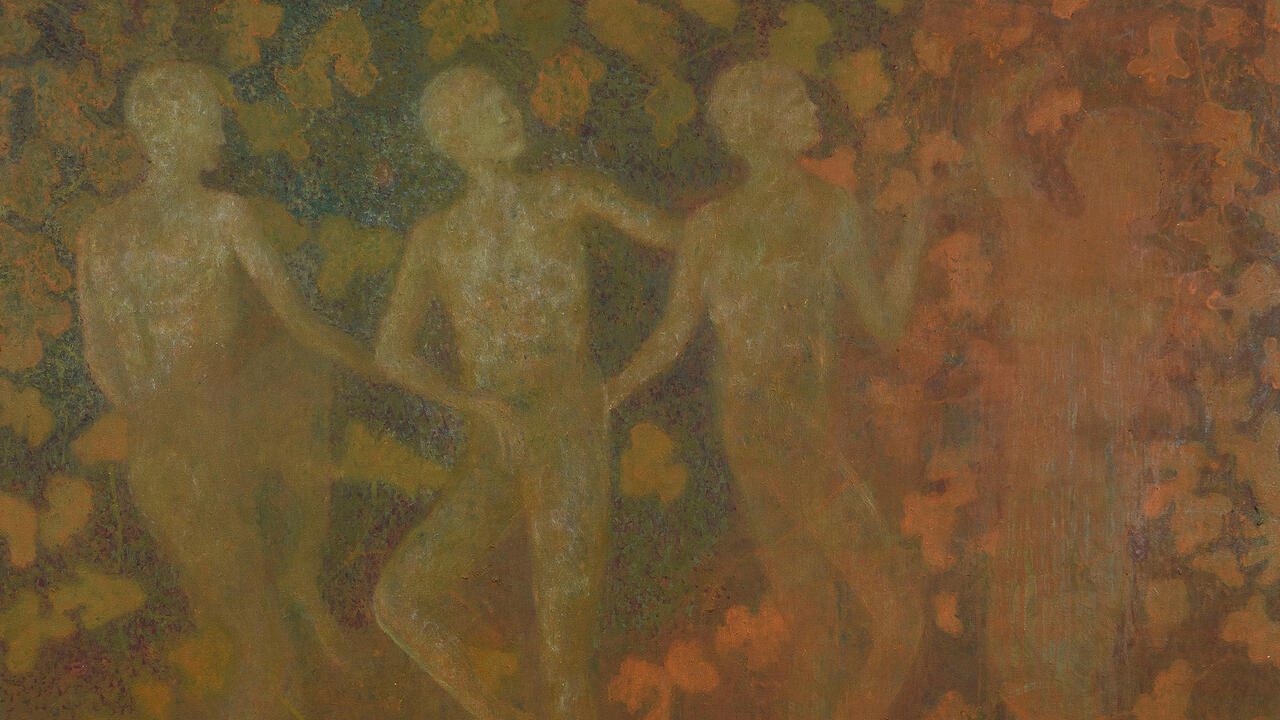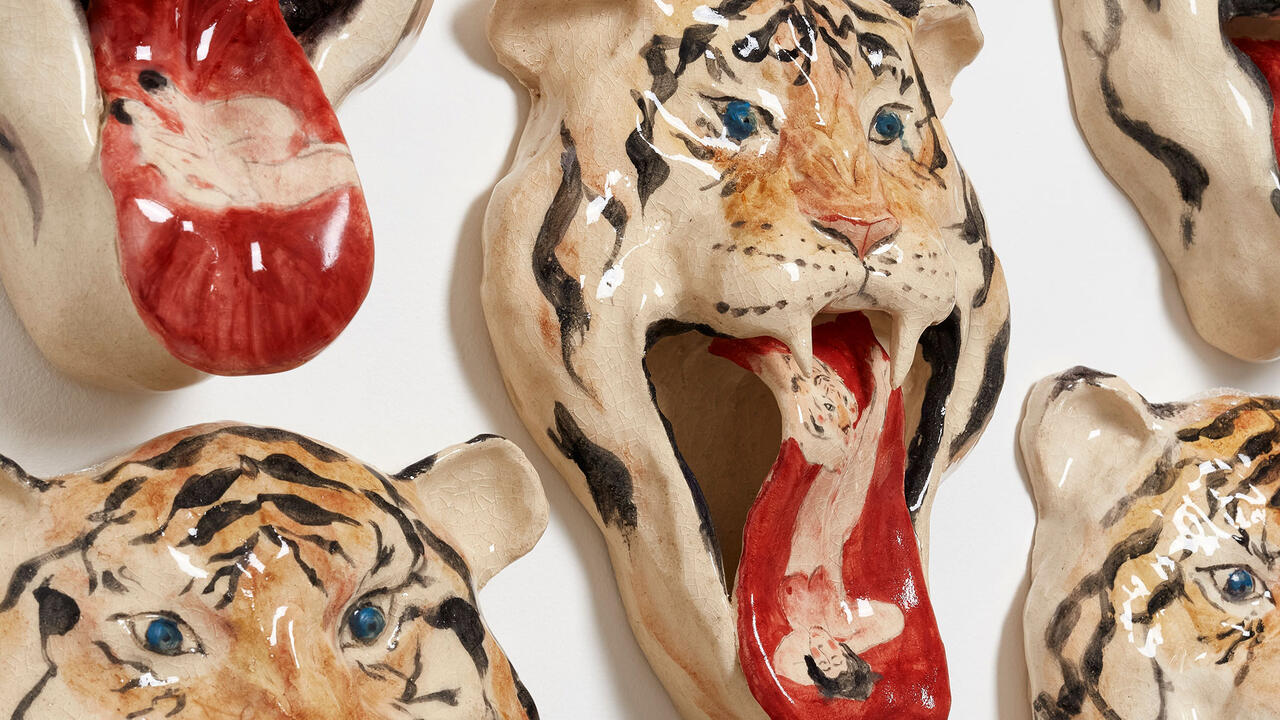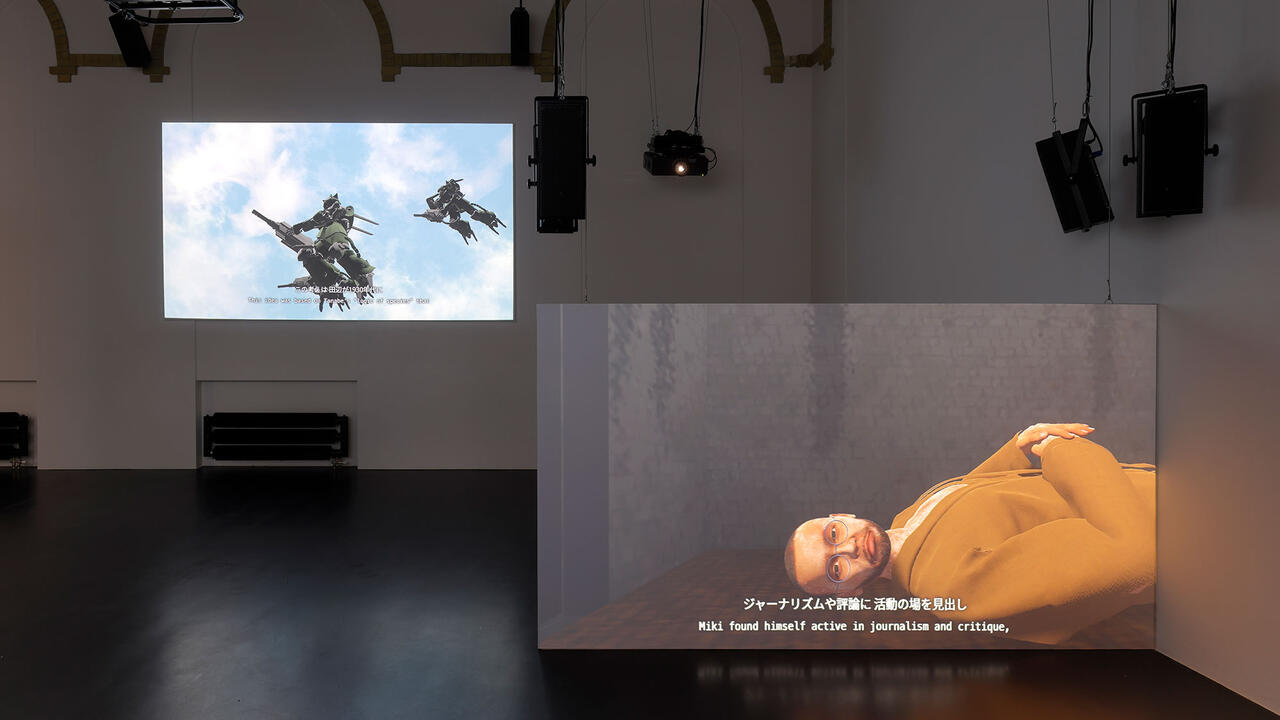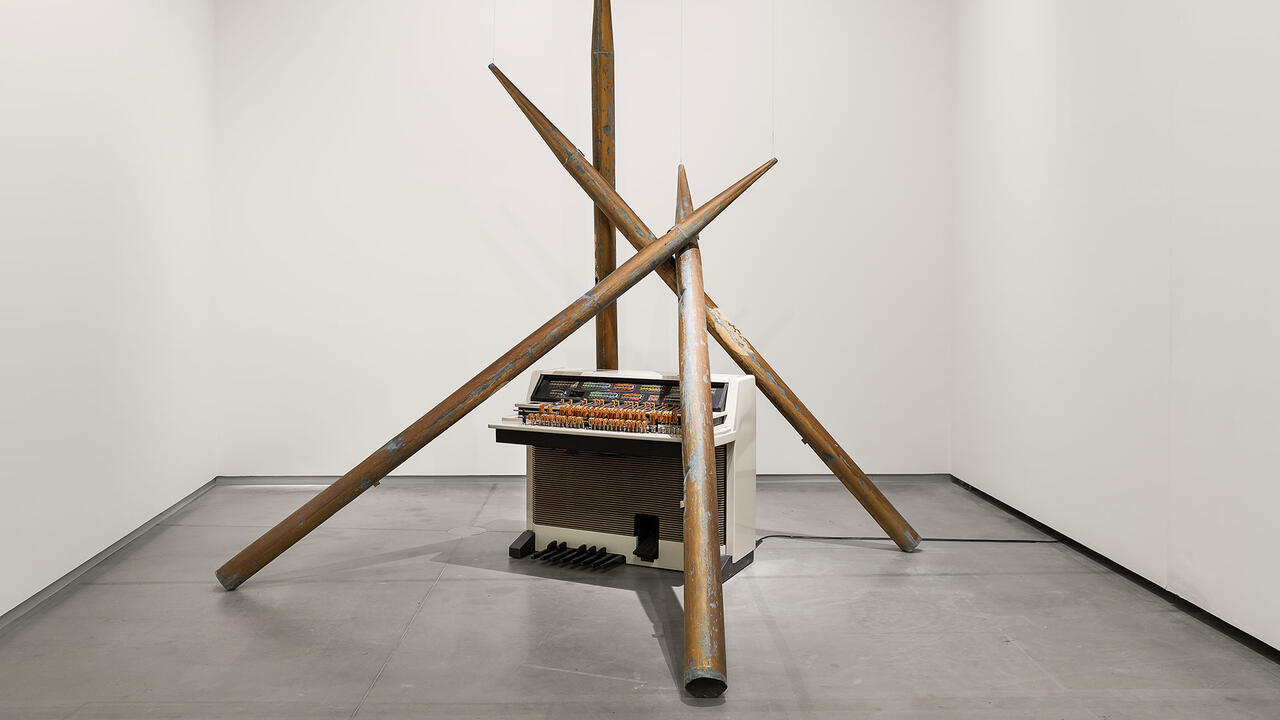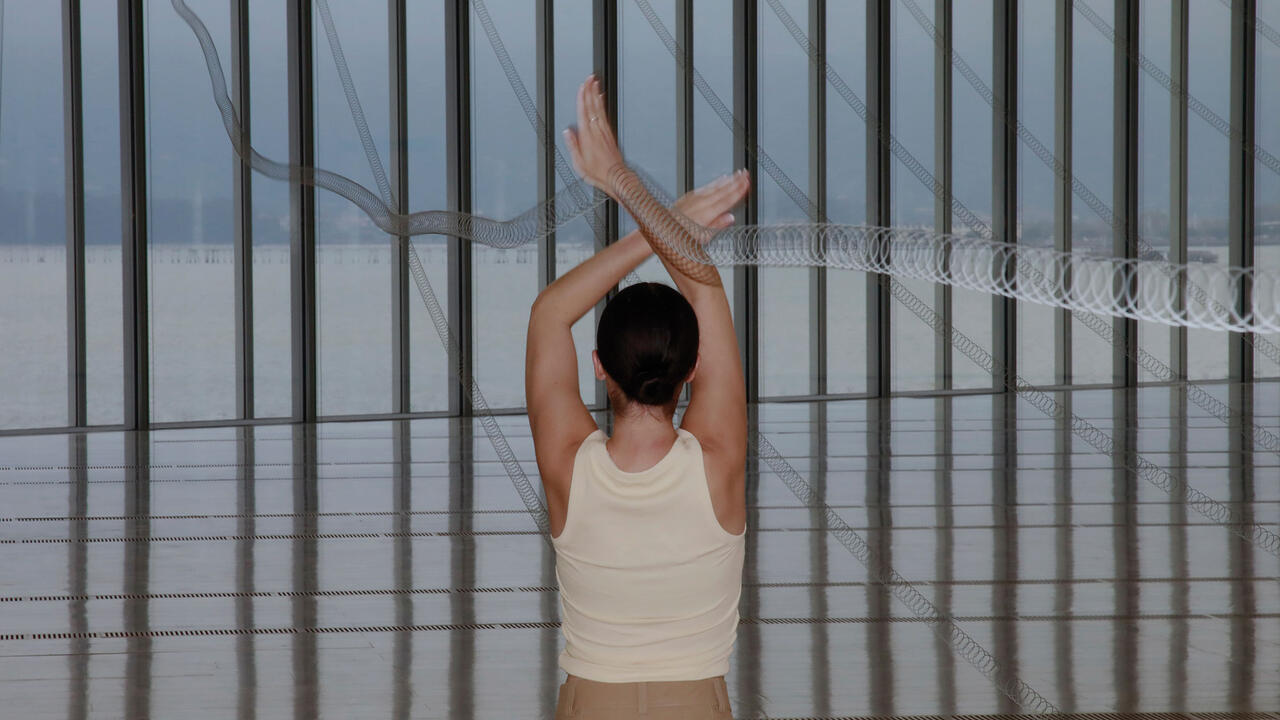Ekene Stanley Emecheta's Uneasy Homage to Historical Portraiture
At The Breeder Gallery, Athens, the Nigerian artist tethers the superficial conventions of European portrait painting to the semiotics of Blackness
At The Breeder Gallery, Athens, the Nigerian artist tethers the superficial conventions of European portrait painting to the semiotics of Blackness

Before visiting ‘Truthful Waters’ – an exhibition of portraits by Ekene Stanley Emecheta at The Breeder Gallery, in which the Black subjects’ skins are overpainted in iridescent shades of white – I spent a few hours idling at Athens’s National Archaeological Museum. Urns and amphorae from the 5th to 7th centuries BCE depict Black-skinned figures participating in foot races, charging at enemies or mourning the dead. In antiquity, the pigmental inversion from white person to Black figure was the convenient technical effect of using a slip that, when fired against a terracotta substrate, filled in outlined shapes with a pitch-black glaze. Emecheta’s careful desaturating of his subjects’ skins, however, has the opposite effect of flattening racial differences. For his first European solo exhibition, the self-taught Nigerian painter tethers the superficial conventions of European portrait painting – costume, exaggerated facial expression – to the semiotics of Blackness.

On the ground floor, Emecheta has arranged several portraits of individuals or pairs in semi-private outdoor spaces against an aqueous palate of turquoise, forest greens and fuchsia. Each person’s facial features are detailed and set up a pastel tone against the white slick Emecheta uses to cover his subjects’ skin. The largest of these, Swimmer Man (all works 2021), depicts a man fully reclined on a yellow floatation device that glides along the surface of a pool. Though the more obvious reference might be to David Hockney’s colour-blocked backyards in works such as Sunbather (1966), Emecheta’s washed-out swimmer, who is pictured with his hands behind his head – a posture that for young Black men signifies police targeting as much as relaxation – produces an uneasiness that recalls the interred body in Hans Holbein the Younger’s macabre The Body of the Dead Christ in the Tomb (1520–22). A similar sense of disquiet is provoked in the dual portrait Behind the Bushes II, in which Emecheta uses eyelines and transparency to turn a banal exchange between two Black men – a priest (whose clerical collar emphatically hangs out of place) offering a cigarette to the man beside him – into a scene far more sinister.

The exhibition continues in the gallery’s basement level, where a second series of portraits depicts subjects in enclosed spaces, again pulled from both biographical and imagined scenarios. Like the Black British painter Lynette Yiadom-Boakye – who masterfully riffs on styles made conventional by her white, male predecessors, often to portray Black subjects who look at one another or at objects beyond the frame of the canvas – Emecheta’s whitewashed Black subjects, borrowing their compositional postures from familiar paintings of white subjects, speak slant through the intricacy of their facial expressions, and through the narratives inferred by their clothing. Two adjacent works depict a man (Untitled) and a woman (Bonnet Girl) looking over their shoulders, emulating Johannes Vermeer’s Girl with a Red Hat (c.1665–66). The woman wears a sleeping bonnet; the man is portrayed in prison garb. Emecheta’s repetition of the classical silhouette in both works, as if to show how much of Black experience is delimited by the tropes and conventions of European figuration.

Emecheta repeats his use of colour across this suite of paintings: the coffee-coloured wall behind the subject of Untitled, for instance, recurs in the dress of the woman in Guardian Angel, a portrait based on a photograph of Emecheta’s mother and sister. These sparks of intimate relation between each of the characters in Emecheta’s exhibition confirm that his method, both as a colourist and as a figure artist, is based on the premise that race and form are as inextricably linked in the questions we ask about history as those posed as fantasy.
Ekene Stanley Emecheta's ‘Truthful Waters’ is on view at The Breeder, Athens, Greece, until 4 September 2021.
Main Image. Ekene Stanley Emecheta, Good Romance (detail), 2021, oil on canvas, 76.2 x 76.2 cm. Courtesy: © the artist and The Breeder, Athens










